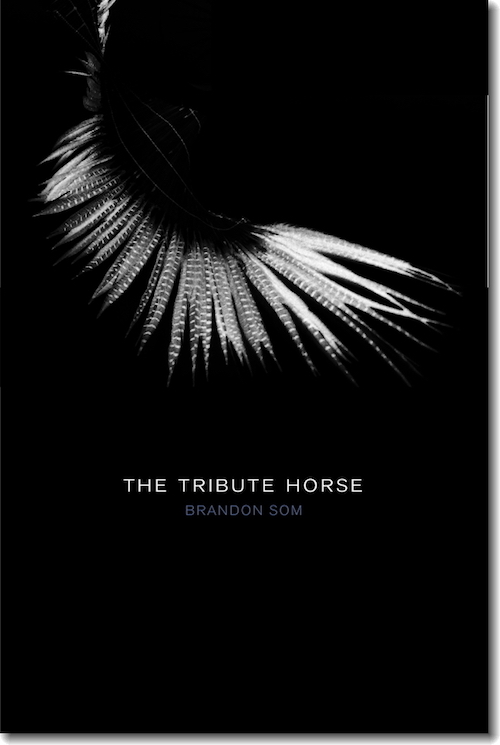John Yau Reads Brandon Som's The Tribute Horse

In his marvelously titled review, "Foreign Sounds or Sounds Foreign," John Yau reflects on sound and the experience of language, and their impact on poet Brandon Som's work. The author of The Tribute Horse, published in 2014 by Nightboat Books, Som is Chinese-American and Mexican-American. His sonically-driven poetry is informed by his experiences growing up in households where Chinese and Spanish were the only languages spoken, and his striving to understand these languages while fluent in neither. From Yau's review:
Som knows that language and sound contribute to identity, especially if immigration is part of one’s current family history. Wasn’t this also true of Louis Zukofsky, who grew up on New York’s Lower East Side speaking Yiddish and didn’t begin to learn English until he started school? Doesn’t Som’s musical and linguistic terseness, his use of found text, and homophonic translations suggest that he has learned from the Objectivists? Isn’t his “debt of sound” also true of Zukosky and others who grew up in a household where English wasn’t the primary spoken language? Or is the avant-garde tradition not open to Asian American writers?
In a recent interview with Interlochen Review editors Nim Holden, Ray Kearns and Sarah Arnett, Som said:
I’m both Chinese-American and Mexican-American, or Chicano. I grew up in these households where Chinese was primarily spoken or Spanish was primarily spoken, and I wasn’t fluent in these languages at all, so I grew up really hearing the music of these languages more so than understanding their meaning. That was really important to me and I think it probably led to me becoming a poet because I spent a lot of time developing a kind of interiority, a kind of inner life, a kind of meditative life. I think it’s also led to me foregrounding and prioritizing music within my own poetry. I’m really interested in what your question suggests, this kind of multi-lingual experience on the page. I think that’s the experience that so many of us have, and I really see the poem as a space for recording all of these languages and their music.
In citing that his “interiority” developed partly in response to growing up in a household where he “wasn’t fluent” in the language spoken by his parents, Som speaks about an immigrant experience. His opening prose “Elegy” gets right to the heart of this book: “My grandfather, aboard at twelve, practiced a paper name.” He was an illegal immigrant, who found a way to bypass the Chinese Exclusion act of 1882, the only law in American history that denied citizenship or entry into the United States based upon a specific nationality. The term “paper son or daughter” refers to Chinese people who purchased fraudulent documents stating that they were blood relatives to Chinese Americans who had citizenships in the United States. Such faked documents likely required you change your name as well as memorize a fake family history.
Learn more at Hyperallergic.


